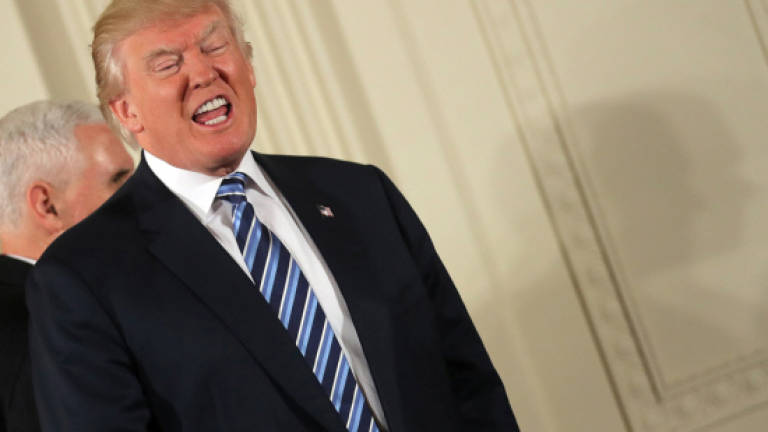Kansas, where Trump's favored tax doctrine already failed

WASHINGTON: Cut taxes to boost growth. Long before Donald Trump became president, Kansas conducted a real-world experiment with this formula in the hopes of reviving its economy.
But today the Midwestern state is beating a hasty retreat after the demonstrable failure of the ideas that have been embraced by the White House.
In 2012, staunchly conservative Governor Sam Brownback rolled out what he promised would be "a shot of adrenaline into the heart of the Kansas economy", which depends heavily on agriculture and aerospace.
Similar in many ways to the Trump administration's fiscal plans, the shock therapy cut local income taxes for the very wealthy and eliminated certain taxes on small business revenue, particularly for the self-employed.
Brownback promised the strategy would create thousands of jobs, encourage Americans to move to the state and help make it "the best place in America to start and grow a small business".
Five years later, the party is over. Growth has plummeted to below one percent, from three percent in 2012, falling well below the national average, according to the St. Louis Federal Reserve Bank.
As a result, tax revenues dried up, blowing a US$900-million (RM3800 million) hole in the state's budget in two years, creating a crisis in which the government is struggling to provide basic services.
"The revenue loss was much larger than anticipated because people took advantage of the cuts by turning themselves into small businesses or independents to avoid paying any taxes," said Alan Cole of the Tax Foundation in Washington.
In March, the state Supreme Court ruled the education system in Kansas failed to meet minimum standards guaranteed under the state constitution.
Rejecting the governor
"This plan was an absolute disaster. It caused economic destruction," said Jim Ward, leader of the opposition Democrats in the Kansas House of Representatives.
"There was just nowhere you could point to where it was successful in terms of providing core services."
But even Republicans now repudiate the Brownback tax plan.
After losing 12 seats in the 2016 elections, the large Republican majority has approved a $1.2 billion tax hike over two years – overriding a veto this week to do so, in a show of determined opposition to the governor.
Brownback deplored the vote, saying "it's wrong for the long-term view of the state of Kansas, it's wrong for growth".
But even supporters of low taxes are finding it hard to defend him.
"It was a good idea that was poorly implemented," said Dave Trabert of the Kansas Policy Institute, a think tank that promotes free market economics and "personal freedom for all Kansans".
"There was success but the governor made the classic mistake of over-promising and displayed political exuberance," he added.
Such warnings could reverberate well beyond the state's borders, all the way to Washington, where Trump has vowed to double economic growth to three percent while slashing corporate taxes by 20% points, and providing tax breaks for the wealthiest Americans.
Economists say there is little evidence such tax cuts can pay for themselves by spurring growth, as the Trump administration claims, and even Republican lawmakers in Washington who are fearful of deficits doubt the wisdom of the plan.
"It's an illusion to think that you can get more revenue by cutting taxes, it's a fantasy," said Charles Wheelan, senior lecturer at Dartmouth College.
"You cannot eat more ice cream and expect to lose weight." — AFP